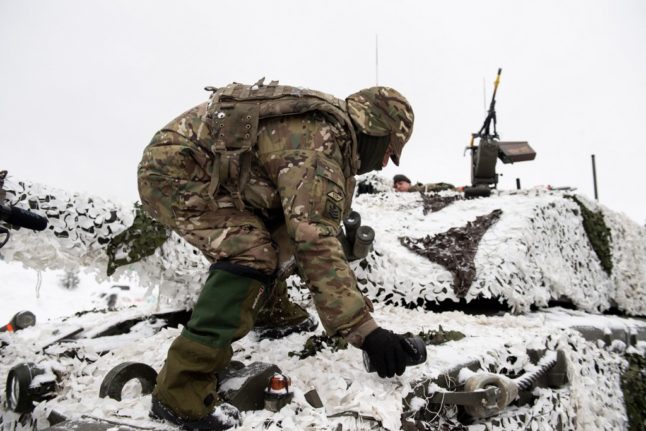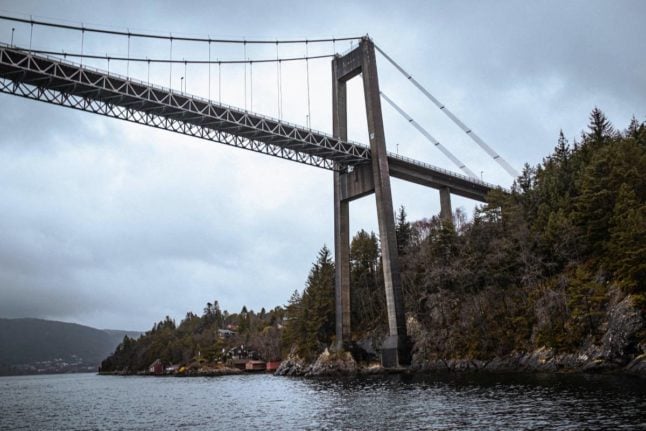Some 30,000 troops, 200 aircraft and 50 vessels from 27 nations will take part in the Cold Response 2022 exercise in Norway on March 14, the largest exercise involving NATO troops this year.
The manoeuvres will enable Western nations to hone their combat skills in Norway’s cold climate, including in the Arctic, on the ground, at sea and in the skies.
The exercise will be held just a few hundred kilometres from the Russian border, and while it was planned long before Moscow’s invasion of Ukraine, it now has added significance because of the war.
“This exercise is extremely important for the security of Norway and its allies. We will practice an allied reinforcement of Norway”, Norwegian Defence Minister Odd Roger Enoksen told AFP.
“It is not being held because of the Russian authorities’ attack on Ukraine, but given the backdrop there is a heightened significance”, he said.
The guardian of NATO’s northern border in Europe, Norway is keen to test how it would manage Allied reinforcements on its soil, in line with Article 5 of NATO’s charter, which requires member states to come to the aid of another member state under attack.
Neighbouring Sweden and Finland, which are officially military non-aligned but increasingly close partners of NATO, will also participate in Cold Response, which will conclude on April 1.
Avoid misunderstandings
“I find it totally normal, perhaps now more than ever, to train together to demonstrate our capacity and our willingness to defend our values and our way of life”, stressed General Yngve Odlo, head of Norway’s Joint Headquarters and in charge of Cold Response.
On the Russian side of the 196-kilometre (121-mile) Arctic border that separates it from Norway is the Kola Peninsula, home to the Northern Fleet and a large number of nuclear weapons and military installations.
“There is no explicit military threat against NATO or Norwegian territory”, Enoksen said, but “the situation in Europe is more unpredictable than it has been in a long time.”
To avoid any misunderstandings, Norway has informed Russia of the Cold Response exercise — defined as “purely defensive” — and will keep a respectful distance from Russia.
General Odlo spoke to Vice Admiral Alexander Moiseyev, commander of Russia’s Northern Fleet, at length about the exercise in order to provide reassurances.
Russia declined however an invitation to send observers to the exercise.
“Any build-up of NATO military capabilities near Russia’s borders does not help to strengthen security in the region”, the Russian embassy in Norway told AFP.
In similar circumstances in the past, Moscow has expressed its discontent by jamming GPS signals or announcing missile tests, thereby blocking access to some international maritime and air space.
‘Rugged conditions’
Russia’s offensive against Ukraine surprised experts, leaving some to wonder whether Russian President Vladimir Putin would try to go after other former Soviet states, such as the Baltics, in his quest to restore the old USSR.
Cold Response “allows us to hone our training, demonstrate our unity, our willingness to work together in rugged conditions which may be conditions that are more familiar in the east”, French General Yvan Gouriou of France’s rapid reaction corps said.
“So the exercise is very relevant in the current situation”, he added.
More than 40,000 troops were initially expected to participate in Cold Response, but the number has shrunk due to the Covid pandemic and geopolitical crises elsewhere.
The US aircraft carrier Harry Truman and its escort ships have been kept back in the Aegean Sea, where they are helping monitor the skies near Ukraine.
READ MORE: Norway closes airspace to Russian aircraft



 Please whitelist us to continue reading.
Please whitelist us to continue reading.
EU needs an army not NATO an old school cold war era alliance, one that will address the security concerns of the bloc inc neutrsl countries.